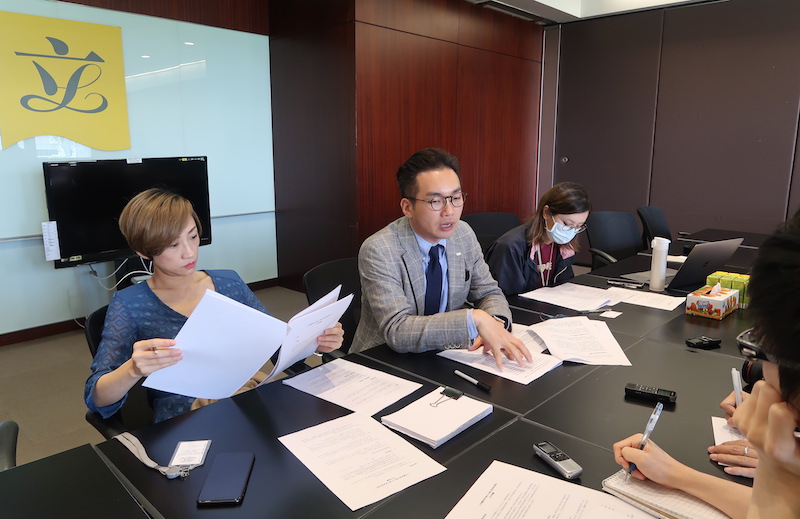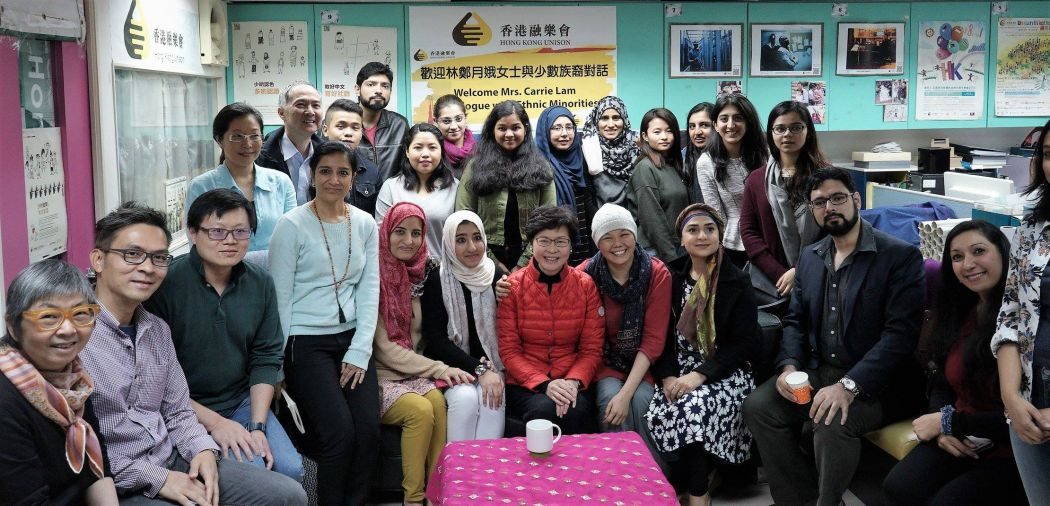Pro-democracy Civic Party has proposed that incoming leader Carrie Lam prioritise her pledge of HK$5 billion extra education spending for Hong Kong’s most underprivileged pupils, such as special education needs (SEN) and non-Chinese students.
“Our education system is full of flaws. Under this system, all students, parents, teachers and other frontline educators are disadvantaged. Policymakers should ensure all stakeholders enjoy equal educational opportunities,” the Civic Party said in its proposal released on Friday.

The proposal came after Lam pledged during her election campaign that she would add HK$5 billion to recurrent spending on education. The recurrent spending on education was about HK$75 billion – around 3 per cent of Hong Kong’s GDP – during the last fiscal year.
The education sector has long complained about inadequate resources. Education sector lawmaker Ip Kin-yuen has criticised the continual decline of the education budget as a share of the government’s total spending, from 25 per cent in 1997 to 21.2 per cent at present.
Special education needs
Lam said last week that she plans to table items as part of the HK$5 billion pledge at the legislature as soon as she assumes office in July, in the hope that the items will be passed before August’s legislative break.
In light of Lam’s plan, the Civic Party released a proposal focusing on the needs of the city’s most underprivileged students – in particular SEN and non-Chinese students – so as to ensure that they enjoy the same educational opportunities as others.

The party proposed spending around HK$1.9 billion on SEN students, including HK$990 million on hires specifically to look after SEN students in qualified kindergartens and all primary and secondary schools. Currently, SEN students in most schools receive support from discipline teachers or vice-principals, according to the party.
It also proposed extending the Individual Education Plan to SEN students who do not currently qualify for the customised learning scheme. It asked Lam to boost subsidies to train teachers, social workers and other non-teaching staff in providing support for SEN students.
There were 48,926 SEN students in primary and secondary schools in 2015-16, accounting for 7 per cent of all primary and secondary students in the city, according to government data. Most of them attended non-SEN government schools.
Non-Chinese students
Since 2014, the Education Bureau has allocated HK$200 million each year to provide schools with teaching support for Chinese as a second language. The funding is only available for schools with 10 or more non-Chinese students.

The Civic Party proposed extending the funding scheme to schools with fewer than 10 ethnic minority students and improving cultural sensitivity of school staff. It also urged the government to finalise teaching guidelines on the Chinese as a Second Language curriculum as soon as possible.
In 2015, the government launched a 25-month pilot scheme to provide non-Chinese students with career and life planning support. The party asked Lam to regularise the scheme on the basis that it was well received by schools and the ethnic minority community.
The scheme would require extra personnel hiring and cost around HK$10 million each year.
It also urged Lam to address the issue of low morale and heavy workload among teachers, such as by increasing the number of permanent teaching posts.
‘Consensus’
The Hong Kong Professional Teachers’ Union said earlier that it generally agrees with Lam’s direction, though the details of her plan remain to be discussed among stakeholders.

Civic Party lawmaker Alvin Yeung said his party is open to discussion with Lam about the HK$5 billion plan, as long as Lam does not push through proposals without consulting the public and lawmakers.
“Lam should seek consensus from the opposition camp before bringing her plans to the Finance Committee,” he said. “If you do the right thing, parties across the political spectrum will agree with you even if you jump the queue.”
